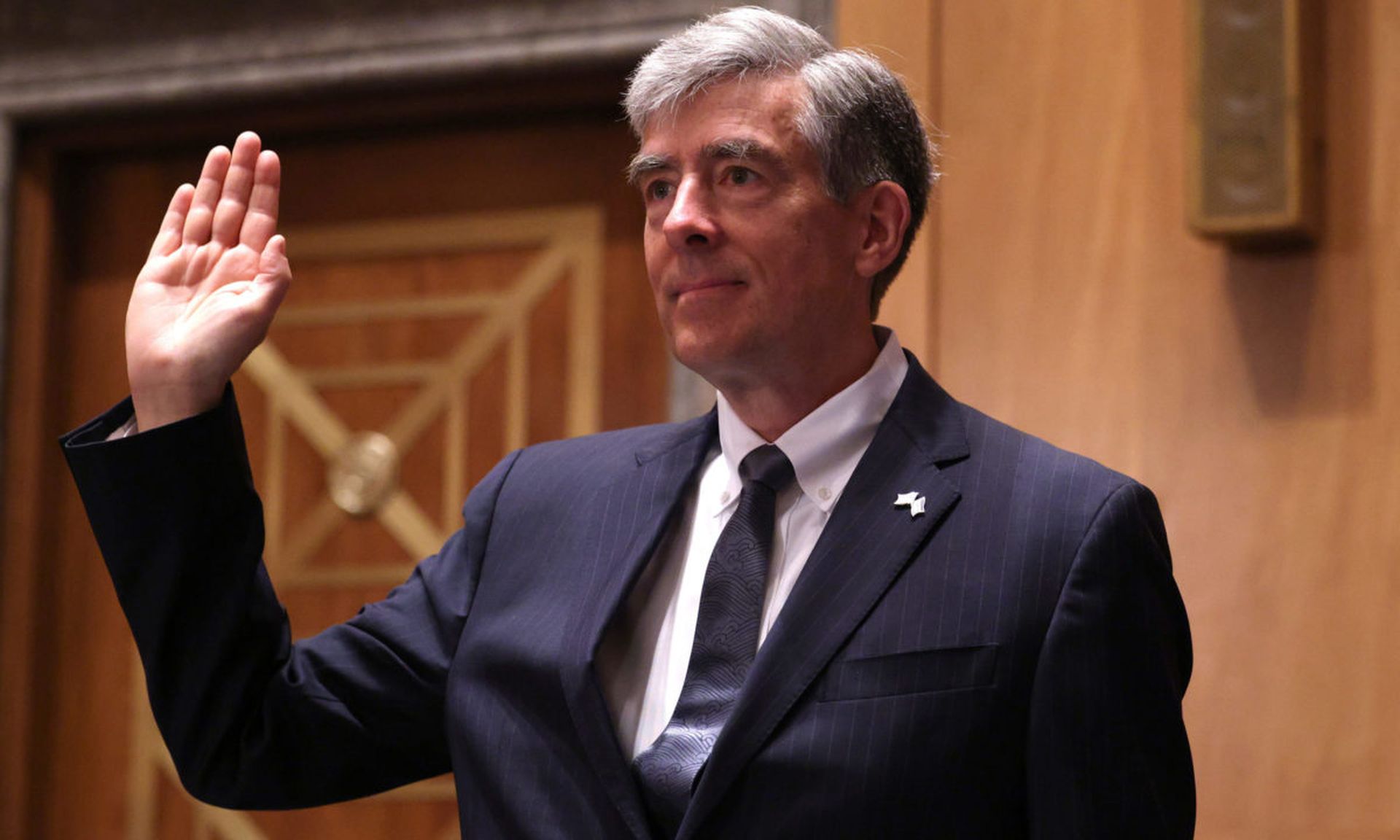
The Senate quietly confirmed Chris Inglis as the first-ever national cyber director by voice vote on Thursday, adding a new White House resource amid a tumultuous year of ransomware, espionage and other cybersecurity concerns.
"After 11 long years, I'm thrilled the U.S. finally has a Senate-confirmed national cyberdirector in the White House," tweeted Rep. Jim Langevin, D-R.I., who first proposed a permanent cyber director role in 2010. "Congratulations, Chris! You certainly will have your hands full, but there's no one better suited for this job than you."
Inglis will be tasked with making sure all the federal agencies operate from a coherent cyber policy. It is a juiced-up, Senate-confirmed, mandated-by-law version of the White House cyber coordinator position that President Donald Trump eliminated.
The position was a key recommendation of the multi-stakeholder Cybersecurity Solarium Commission headed by Sen. Angus King, I-Maine, and Rep. Mike Gallagher, R-Wisconsin.
Introducing Inglis at his confirmation hearing last week, King called the national cyber director and the head of the Cybersecurity and Infrastructure Security Agency "the equivalent of the Secretary of Defense and the head of the Joint Chiefs of Staff.”
King has frequently touted the importance of the national cyber director as a face of the administration's cybersecurity policies to turn to in times of crisis as a "single neck to throttle" when things go wrong.
One key challenge for Inglis will be defining the role of his office in practice. There are a growing number of agencies with offensive and defensive interests in cyberspace.
“What [the NCD role] really is pushing for is to create coherence, unity of effort, unity of purpose, across what are already impressive capabilities within the federal enterprise, and a partnership with the private sector where most of cyber gets built, operated, innovated and defended,” Inglis said at his hearing.
“So I think that the primary purpose of the national cyber director must be to add value, coherence, leverage [and] connection to all of those other pieces, and to identify when necessary when something’s missing, and to ensure that the national strategy, and their implementation strategy, ultimately creates a coherent effort.”



